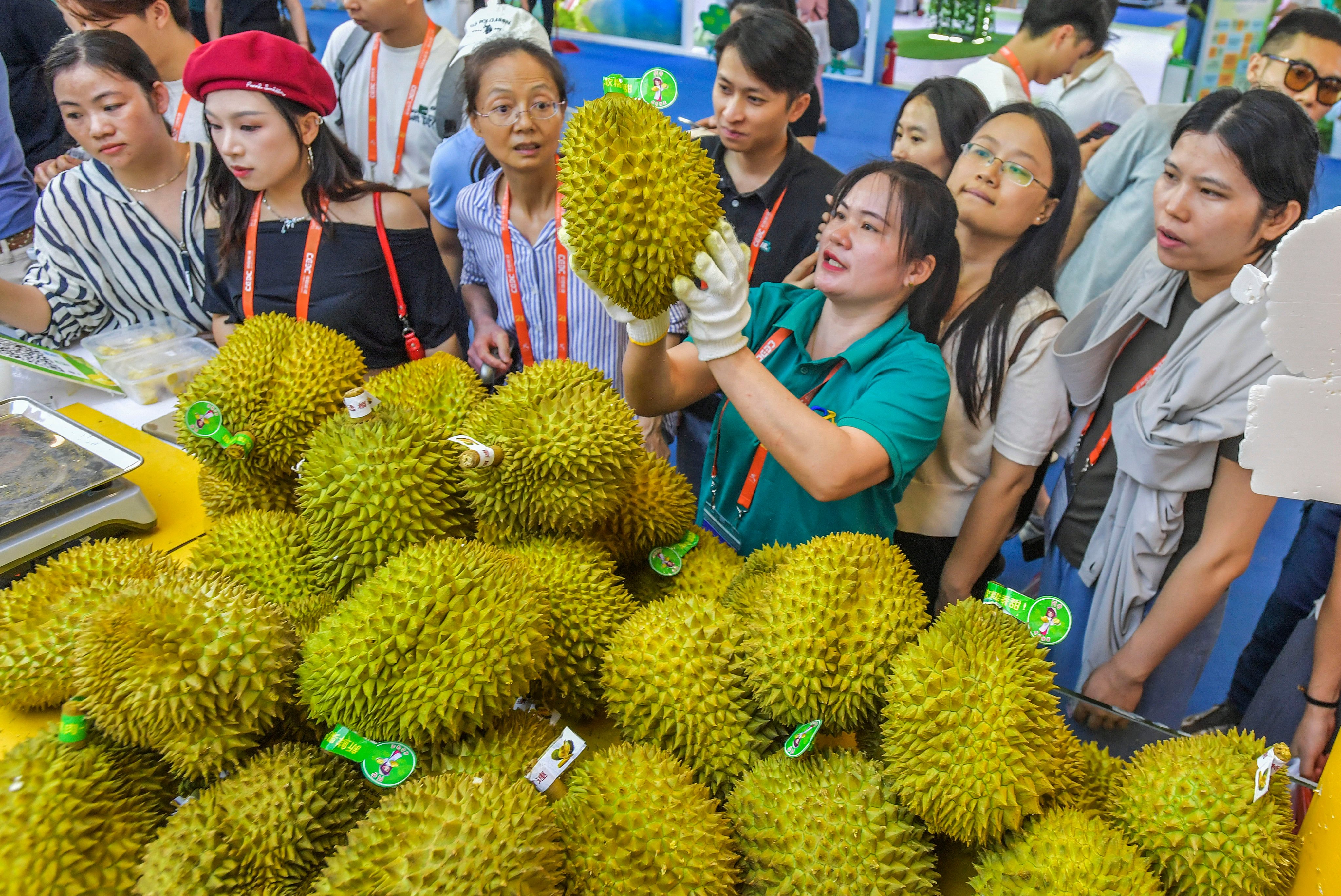China toughens import rules on Vietnamese durians after detecting health risks
Vietnam competes with Thailand as the top exporter of the fruit to China – but tighter customs inspections are slowing exports, analysts say

Chinese authorities have tightened oversight of imported Vietnamese durians this year after finding “excessive levels” of two potentially harmful substances in the popular, high-value fruit.
The General Administration of Customs of China now requires enhanced pre-export safety checks and compliance testing before shipments leave the source country, with “qualified” test reports to be attached to durians, a customs official told the Post, requesting anonymity due to internal rules.
She said the administration had intensified testing for the organic compound alkaline yellow and the metal cadmium in Vietnamese durians, after discovering concentrations that “seriously endangered the health of domestic consumers” at the start of 2025.
“In order to effectively prevent food safety risks, the General Administration of Customs immediately took action.”
Under the stricter rules, Vietnamese durians are subject to “batch by batch” testing – with any unqualified fruits returned or destroyed. Exporters are in turn suspended from shipping the fruit to China, she said.
Fresh durian shipments from Vietnam fell by about 45 per cent year-on-year from January to June in value terms, customs data showed. Vietnam’s shipments totalled US$611.5 million over the first half of 2025.
The pungent spiky fruit fetches large sums in China – the world’s biggest importer of the delicacy – where a 6kg (13.2lbs) specimen sells for as much as 200 yuan (US$29). Durians are especially popular with middle-class families as well as dessert makers and givers of gifts for occasions such as weddings.
Vietnam has vied with Thailand, China’s historic top source of imported fresh durians, for a slice of the market since mid-2022. China also allows Cambodia, Malaysia and the Philippines to ship fresh durians.
Vietnamese media outlets had noted a rise in rejected durian shipments earlier in the year. Analysts believe some growers in the Southeast Asian country lack nearby fruit testing facilities and may still be getting used to complying with Chinese rules.
China’s “tightened” customs inspections are “slowing down distribution and affecting turnover” of durians from Vietnam among other places, said Lim Chin Khee, an adviser to the Durian Academy, a Malaysian institution that trains local growers.
Unhandled type: inline-plus-widget {“type”:”inline-plus-widget”}